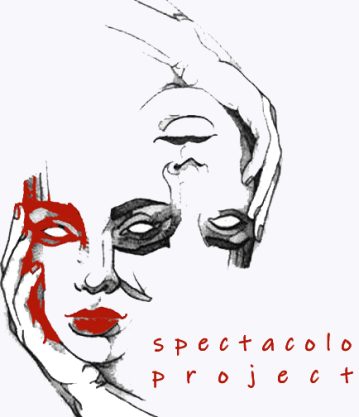Under construction

under construction

Performing arts in Greece
Greek contemporary theater productions encompass a diverse range of styles, themes, and approaches. They reflect the evolving cultural, social, and political landscape of Greece, often incorporating innovative techniques and addressing current issues. Here is a general description of Greek contemporary theater productions:
The theatrical organizations that dominate Greek theatrical production and creation
could be divided into three categories:
- The State and Municipal theatres.
- The non-profit theatre organizations
- and the Commercial Theatres
These three categories of legal form cover almost all types of theatrical expression through 1000 or more performances per year and in about 350 theatrical venues that exist in Greece (Mainly in Athens and the major cities of Greece).
Another division and classification of theatrical production in Greece could be seasonal.
Indeed, in winter, when most of the theatrical production takes place, theatres express themselves with greater freedom and it would not be an exaggeration to say that in winter the spectators can find whatever kind of theatre they wants.
During the summer the theatrical organizations confine themselves to productions of ancient drama (Tragedy and Aristophanian comedy) comedies and satirical revues (an absolutely Greek theater kind) in the few permanent summer stages in Athens, or to touring ancient and open-air theatres.
Based on the types of theatre that prevail in the Greek theatre scene, we could mention that the spectator can see in Greece mainly the following types of performances:
Based on the types of theatre that prevail in the Greek theatre scene, we could mention that the spectator can see in Greece mainly the following types of performances:
- Experimental and Avant-Garde:. Greek contemporary theater and especially the nonprofit theater organizations often embrace experimentation and pushe artistic boundaries. It incorporates avant-garde techniques, non-linear narratives, and unconventional staging to challenge traditional theatrical norms and engage audiences in new and thought-provoking ways.
- Social and Political Commentary: Many contemporary Greek theater productions tackle social and political issues, exploring themes such as identity, immigration, economic crisis, gender equality, and human rights. These productions often provide critical commentary on societal issues and provoke conversations and reflections among audiences.
- Physical and Visual Theatre: Physical and visual theater techniques are prominent in Greek contemporary productions. Physicality, movement, and choreography play significant roles, with performers using their bodies to convey emotions, tell stories, and create powerful visual imagery.
- Interdisciplinary Approaches: Greek contemporary theater often incorporates elements from various artistic disciplines, such as music, dance, multimedia, and visual arts. Collaborations between theater artists and professionals from other fields result in interdisciplinary productions that offer unique and immersive experiences.
- Mythology and Ancient Greek Drama: Greek mythology and ancient Greek drama continue to inspire contemporary theater productions in Greece. Playwrights and directors often reinterpret classical texts and myths, infusing them with modern relevance and addressing universal themes that resonate with contemporary audiences.
- Site-Specific and Immersive Theater: Greek contemporary theater explores non-traditional performance spaces and site-specific productions, taking performances outside the traditional theater venues. These immersive experiences blur the boundaries between performers and spectators, creating intimate and interactive encounters.
- International Collaborations: Greek contemporary theater artists, not very often engage in collaborations with international artists and theater companies. So, the participation of Greek theater organizations are not very important to the global dialogue of contemporary theater which would enrich the Greek theatrical landscape.
What is the situations of theater technical professionals in Greek theater now dates
Theatrical education and training in Greece could not be said to be in a good state.
The drama schools from which only actors emerge are mainly private, with often questionable quality of studies, facilities, teaching staff and technical equipment.
There are also 2 state schools that are under the auspices of two state theatres. These two state schools operate under the same conditions as the private ones, although they admittedly provide a better quality of studies.
There is no school of theatre directing. The directors who are active in Greece (generally talented) have studied abroad or are actors who have become directors after a short or long stint in the theatre.
Stage designers and costume designers have also studied abroad (mainly in England), at least those who have not graduated from the School of Fine Arts which belongs to the Polytechnic School of the University of Athens (the former) and from fashion schools (the latter).
All other theatre professionals come from other fields outside theatre and have specialized in theatre through practice and experience (light designers, make up designers, costume designers).
School of Sound designers of higher level exists but not specialized in theatre. They are part of a general framework of sound engineering and their professional orientation is directed towards studios and the production of television and film programs.
Video art and Live streaming professionals are more like filmmakers who out of personal interest discovered this new field and are involved in video art and recently due to a pandemic in live streaming.
- Job Availability: The availability of job opportunities for theater technical professionals can vary depending on factors such as the size of the theater company, funding, and the number of productions being staged. Larger and more established theaters may have more resources to hire technical professionals regularly, while smaller companies may rely on a smaller team or freelance technicians.
- Freelance and Project-Based Work: the most theater technical professionals in Greece work on a freelance or project-based basis, collaborating with different theater companies and productions. This can provide opportunities for varied work experiences but may also mean periods of unemployment between projects.
- Skill Set and Specializations: Theater technical professionals possess a wide range of skills, including lighting design, sound engineering, set construction, costume design, stage management, and more. The demand for specific technical roles can vary depending on the needs of individual productions and the resources available to the theater company.
- Challenges and Opportunities: Like in many countries, theater technical professionals in Greece may face challenges such as job insecurity, competition for limited positions, and the need to continually update their skills to keep up with evolving technologies and industry trends. However, there are also opportunities for growth and advancement through networking, continuing education, and involvement in diverse theater projects.
It is essential to consult reliable sources, industry publications, and professional networks in Greece to gain a better understanding of the current situation for theater technical professionals in the country.
- Workshops and Master classes: Various workshops and master classes are organized by theater organizations, professional associations, in Greece to almost all the theater professions but mainly on stage and costume designers. These short-term training opportunities offer a chance for aspiring stage and costume designers to learn from established professionals and gain practical insights into the field.
Internships and Practical Experience: Students pursuing to be designers in theater sectors in Greece often have opportunities for internships or practical experience through collaborations with theater companies, production companies, or other artistic projects. These experiences allow them to apply their skills in the real-world of production and develop their portfolios.


